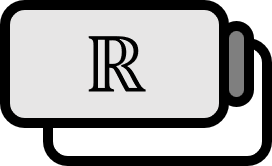Equivalent Conditions for Discontinuity in Analysis
Theorem 1
A function $f : \mathbb{R} \to \mathbb{R}$ is not continuous at $x_{0}$ if and only if: $$ \exists \epsilon > 0 , \forall \delta > 0 : \exists x ( \delta ) \in \mathbb{R} \left( \left| x ( \delta ) - x_{0} \right| < \delta \land \left| f \left( x ( \delta ) - f \left( x_{0} \right) \right) \right| \ge \varepsilon \right) $$
Explanation
While it’s not particularly difficult if you think about it, it can be quite confusing when you try to recall it on the spot.
A discontinuity is the negation of continuity. To express the proposition more literally, no matter how close $x ( \delta )$ is to $x_{0}$, there is at least a difference of $\varepsilon > 0$ between function values at $f$.
